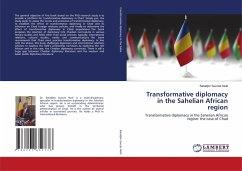The goal of this book is to thoroughly understand the context of the dominant jihadist narratives and the nature of their appeal in the Sahelian region. All these jihadist ideologies are based on a peculiar Salafi Radicalism that aimed to transform the state and society by methods of preaching and violence. Therefore, studying and analyzing the principles of the Salafist discourse as a political project helps us to understand its points of strength and weaknesses. Also, we can better look at the future trends and prospects of violent jihadist groups in the African Sahel. The roots of this Islamic discourse as a political project may be attributed to what Lunay and Suarez call the "Islamic domain". The rise of violent radical Islamism represents the drive from the internal political and socioeconomic dynamics evolving in each Sahelian state. However, the struggle and rivalry of jihadist ideologies after the military defeat of Daesh in Mosul are important at a time when thousands of fighters who have survived the civil wars in Iraq, Syria, and Libya are looking for new jihadists fields.
Bitte wählen Sie Ihr Anliegen aus.
Rechnungen
Retourenschein anfordern
Bestellstatus
Storno








